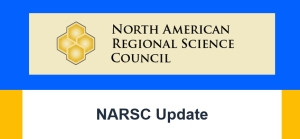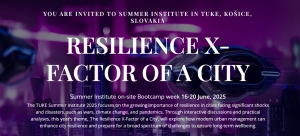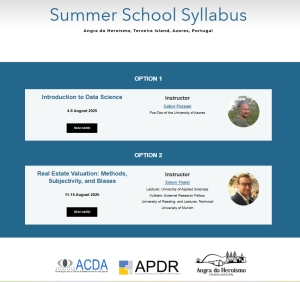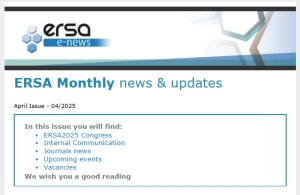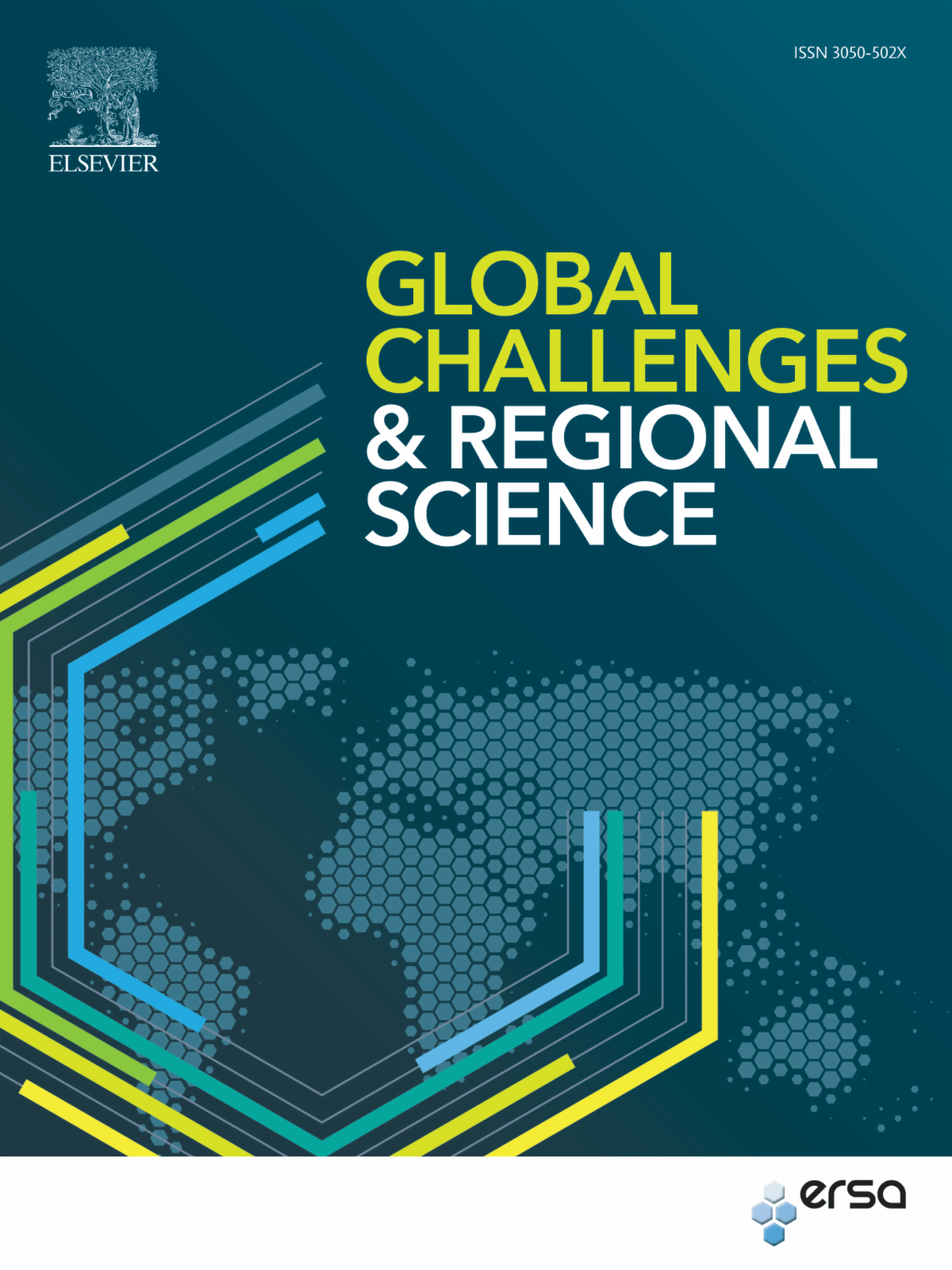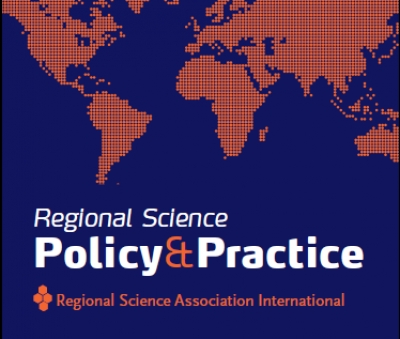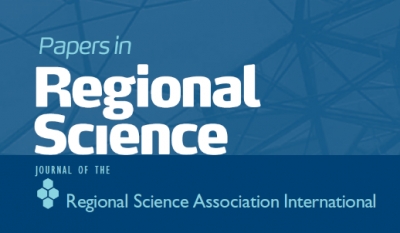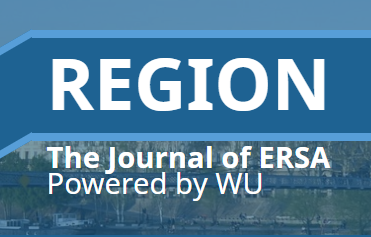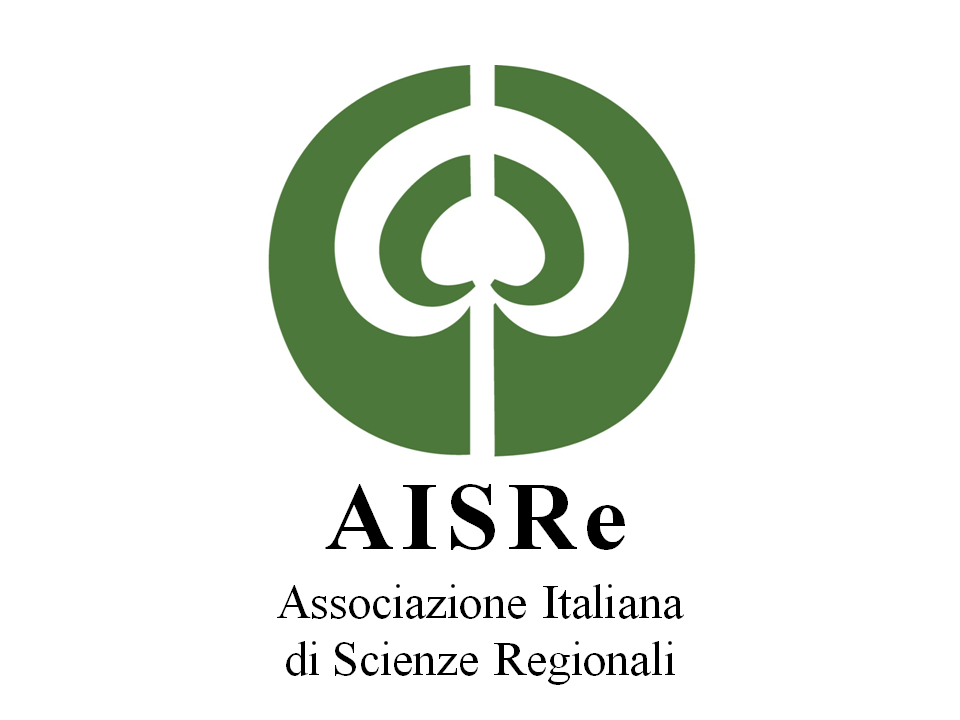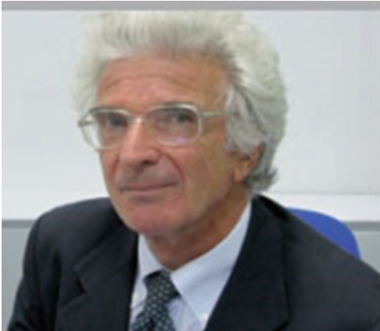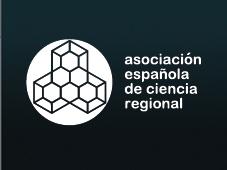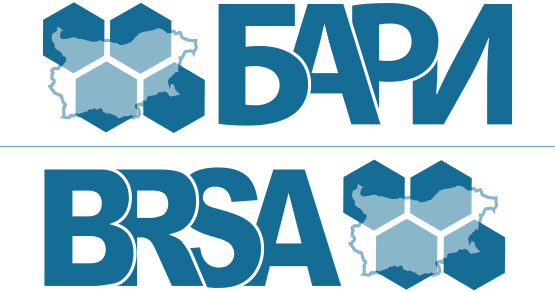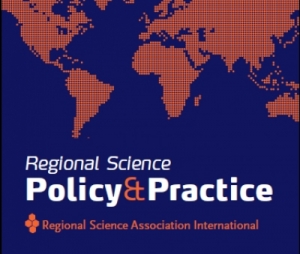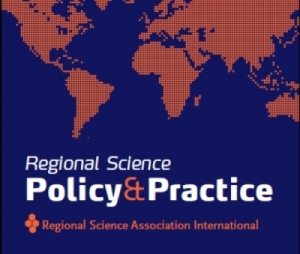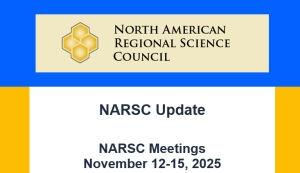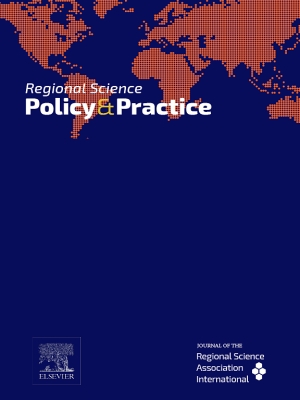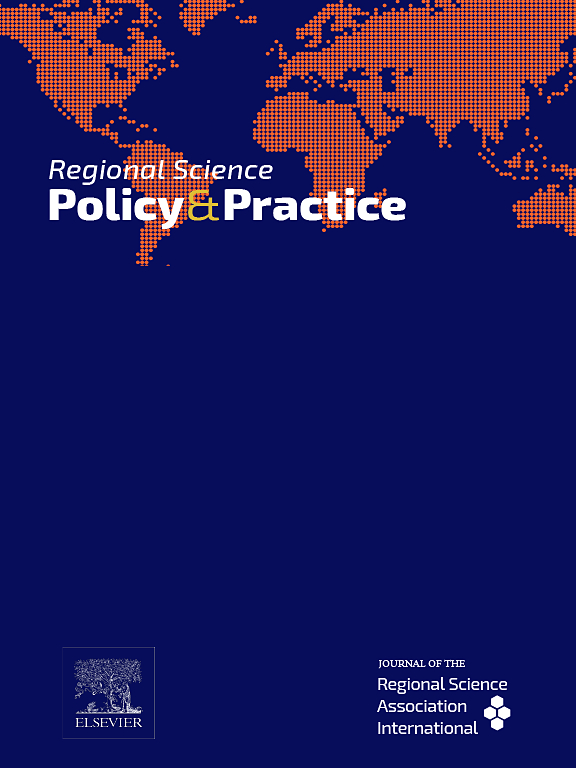Council
Elisabete Martins
NARSC Update | Stevens Award Winner | NARSC at ASSA/AEA Meetings
|
Summer Institute 2025, Resilience X-Factor of a City, 16-20 June 2025, Košice, Slovakia
Summer Institute 2025
Resilience X-Factor of a City
16-20 June 2025, Košice, Slovakia
Registration deadline for PhD student: 15 April 2025.
Contact This email address is being protected from spambots. You need JavaScript enabled to view it.
The Summer Institute will be held in Košice, Slovakia, from June 16 to June 20, 2025, and will bring together early-stage researchers and scholars interested in urban and regional science and related fields.
The Summer Institute 2025 focuses on understanding and strengthening urban resilience by addressing shocks, assessing impacts, fostering adaptation, enabling mitigation, and driving improvement. As our world becomes increasingly complex, cities must evolve, adapt, and bounce back stronger from challenges – whether environmental, social, or economic.
Participants will gain insights into mitigating risks, responding to diverse shocks, and rebuilding cities as resilient, modern, and sustainable urban hubs. By exploring the invisible strength of urban spaces, participants will develop a better understanding of what makes cities resilient in the face of uncertainty and how adaptation and proactive reaction can minimize negative impacts.
The outcomes of the Summer Institute 2025 will also be used as a science-based input for the global COP30 Climate Conference in Belem, Brasil.
Invited speakers and experts
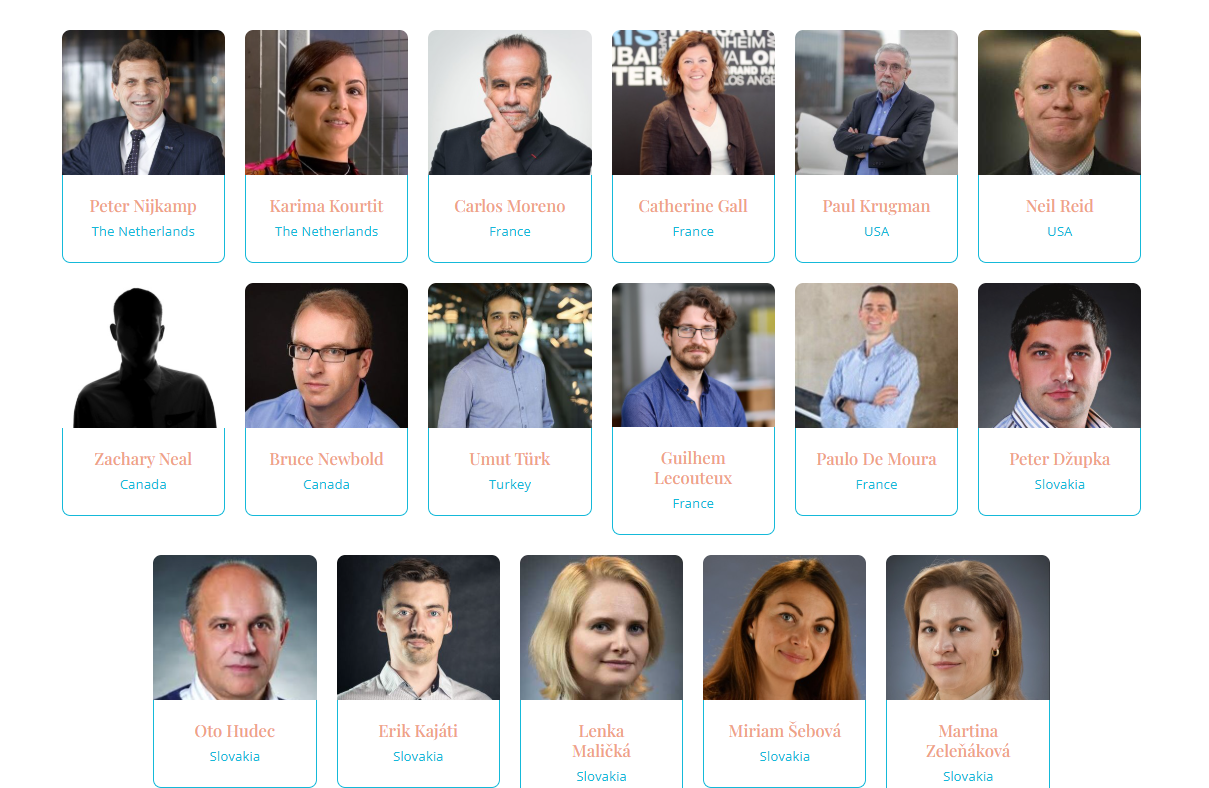
How to apply
Participants should be Master/PhD students or young scientists in the fields of study such as Economics, Regional Science, Architecture, Urban studies, Geography. Participants should be fluent in English (minimum level B2) and eager to work in teams and enthusiasts for solving actual city problems
Ulysseus partner and university students:
Participants should apply for BIP call and have an Erasmus+ STBM Grant (Short Term Blended Mobility) from their Ulysseus home university. The organizers ensure reasonable accommodation options for all participants.
Self-funded participation :
To apply, submit your CV and thesis proposal to This email address is being protected from spambots. You need JavaScript enabled to view it.
Further details are available on our website: https://summerinstitute.tuke.sk/
Portuguese Section | Call for Applications | Two Summer School Syllabus, 4-8 August 2025 and 11-15 August 2025 at Angra do Heroísmo, Terceira Island, Azores, Portugal
Call for Applications
Two Summer School Syllabus
4-8 August 2025 and 11-15 August 2025
Angra do Heroísmo, Terceira Island, Azores, Portugal
Option 1
Introduction to Data Science4-8 August 2025
|
Option 2
Real Estate Valuation: Methods, Subjectivity, and Biases11-15 August 2025
|
Instructor
Simon Thaler Lecturer, University of Applied Sciences Kufstein; External Research Fellow, University of Reading; and Lecturer, Technical University of Munich |
Applications
Application submission
Participants who want to participate in a specific course should submit their application via email (This email address is being protected from spambots. You need JavaScript enabled to view it.) by 15 June 2025 (midnight CET) indicating the name of the course and include (in PDF format):
- A one-page Motivation letter;
- A one-page CV of the applicant.
ERSA Monthly E-news - April 2025
|
|
|
|
|
|
|
|
|
|
|
|
|
|
|
|
|
|
|
|
|
|
|
|
|
|
|
|
|
|
|
|
|
|
|
|
|
|
|
Call for Papers | RSPP Special Issue: Remote Working as a Driver for Rural Transformation?

Call for Papers for Special Issue in Regional Science Policy & Practice (RSPP)
Title: "Remote Working as a Driver for Rural Transformation?"
Guest Editors: Nino Javakhishvili-Larsen & Hans Westlund
The interplay between digitalization, remote work, and counterurbanization is reshaping population distribution and regional development in the 21st century. This special issue explores how the rise of remote work, facilitated by digital technologies, acts as a catalyst for transformative change in rural areas by enabling migration from urban centers and influencing the spatial reorganization of human capital.
Counterurbanization, a key concept in this context, refers to the migration of populations from urban to rural areas (Berry, 1976). Initially observed in the 1970s, this trend has recently regained momentum, driven in part by the rise of remote work—the ability to work outside traditional office spaces using information and communication technologies (ICT). These shifts have reshaped the "post-rural" discourse by blurring the conventional urban-rural divide (Westlund & Borseková, 2025). The emergence of city-regions, which integrate nearby small towns, rural areas, and natural landscapes while more peripheral rural areas and smaller cities decline, exemplifies this transformation. Essentially, "post-rurality" reflects the fundamental redefinition of rural characteristics and functions within an increasingly urbanized and interconnected world (Westlund & Borseková, 2025). The COVID-19 pandemic served as an accelerator, compelling many organizations to embrace remote work, which normalized this practice and broadened its appeal (Eliasson et al. 2025). As a result, many people have reevaluated their living situations, considering rural areas as viable alternatives to densely populated urban centers.
The implications of remote work extend beyond simple population shifts. They are also reshaping migration patterns, with individuals less bound by the geographical constraints of their jobs, when presence on the workplace can be reduced by several days a week. This freedom leads to a renewed interest in rural living, often motivated by lifestyle factors such as proximity to nature, a desire for a slower pace of life, and larger homes (Andersen et al. 2022; Thulin 2023; Haandrikman et al. 2024). Many rural areas, once seen as economically stagnant, are now attracting new residents, including those with valuable human capital attributes (Javakhishvili-Larsen and Andersen 2025a; 2025b).
This shift towards a more distributed workforce presents both opportunities and challenges:
Opportunities: Digitalization enables rural communities to overcome traditional economic limitations by attracting skilled remote workers. The increased availability of remote work promotes the redistribution of human capital across regions, which might promote entrepreneurship and innovation in previously stagnating regions. Coworking in joint workplaces can prevent remote workers from social isolation.
Challenges: These include the revision of rural policies to address the evolving patterns of rural economies and demographics, as well as improvements in internet infrastructure, employers’ willingness and capacity to manage remote work, policy adaptations to accommodate the changing nature of work, and the potential impacts on community structures. Issues such as the digital divide could exacerbate existing regional inequalities if some areas lack access to reliable digital services. Furthermore, the presence of various types of amenities – and combinations of them – vary considerably between rural communities, which make certain areas more attractive than others. The distance to the official workplace and commuting opportunities are of course also remaining issues, even if their importance has decreased.
Remote working is not merely a temporary adjustment due to the pandemic but a new reality that can be a powerful force driving transformative change in rural areas. By enabling counterurbanization, it might reshape migration patterns and influence the composition of human capital in the receiving regions. It also presents new opportunities and challenges, requiring both innovative policy approaches and a reevaluation of regional development strategies to leverage the full potential of remote working for rural development.
Keywords: Remote Work, Counterurbanization, Rural Transformation, Digitalization, Regional Development, Human Capital Mobility, Rural Policies.
Manuscript submission information:
We invite conceptual and empirical studies as well as policy analysis and discussions. All submissions must be original and may not be under review elsewhere.
All manuscripts will be submitted via the Regional Science Policy & Practice online submission system (https://www.editorialmanager.com/rspp/). Authors should indicate in the cover letter that the paper is submitted for consideration for publication in this special issue “Remote Working as a Driver for Rural Transformation”, otherwise, your submission will be handled as a regular manuscript.
Submissions deadline: 15th of December 2025.
-----------
References:
Andersen, H., A. Egsgaard-Pedersen, H. Hansen, E. Lange, and H. Nørgaard. (2022). Counter-Urban Activity Out of Copenhagen: Who, Where and Why?” Sustainability 14 (11): 6516. https://doi.org/10.3390/su14116516
Berry, B. J. L. (1976). The counterurbanization process: Urban America since 1970. In B. J. L. Berry (Ed.), Urban Affairs Annual Review (Vol. 11, pp. 17-30). Sage.
Eliasson, K., Borsekova, K., Nilsson, P. & Westlund, H. (2025). Flight from the City? Pre- and Post-Pandemic Migration in Sweden. Paper presented at the 64th annual meeting of the Western Regional Science Association, Lake Las Vegas, Henderson, Nevada, February 12-15, 2025.
Haandrikman, K., Hedberg, C., & Chihaya, G. (2024). New immigration destinations in Sweden: Migrant residential trajectories intersecting rural areas. Sociologia Ruralis, 64(2), 280–306. https://doi.org/10.1111/soru.12468
Javakhishvili-Larsen, N., & Andersen, H. T. (2025a). The role of immigrant human capital in Danish second-tier towns and rural areas. European Planning Studies, 1–20. https://doi.org/10.1080/09654313.2025.2463627
Javakhishvili-Larsen, N., & Andersen, H. T. (2025b). Is the Danish rurality becoming a human capital magnet? In U. Grabski-Kieron & L. Greinke (Eds.), Rural Geographies in Transition: Rethinking Sustainable Futures of Rural Areas (Vol. 11, pp. 224). Münster: LIT Verlag, pp.37-56. Available at https://lit-verlag.de/isbn/978-3-643-91700-3/
Thulin, E., Vilhelmson, B., & Brundin, L. (2023). Telework after confinement: Interrogating the spatiotemporalities of home-based work life. Journal of Transport Geography, 113, 103740.
Westlund, H., & Borseková, K. (2025). The post-urban hypothesis. Global Challenges & Regional Science, 1, 100005. https://doi.org/10.1016/j.gcrs.2025.100005
ERSA Congress 2025 | Register Now! Early Bird Fees Expire Soon
|
|
|
|
|
REGISTER NOW!
|
|
|
|
|
|
|
|
|
Winner RSPP Paper Award 2025
RSPP Paper Award 2025
The Committe, made up of Denise Pumain (ERSA), Kara Kockelman (NARSC), Carlos Azzoni (LARSA), and Neil Reid (NARSC), evaluated five very good papers -pre-selected by the RSPP EiC, Andrea Caragliu- and decided that this year the Award goes to:
Loras-Gimeno, D., Gómez-Bengoechea, G., & Díaz-Lanchas, J. (2024). Fiscal redistribution and the narrowing urban–rural income gap. Regional Science Policy &Practice, 16(5), 100045. https://doi.org/10.1016/j.rspp.2024.100045
The winner was chosen because of its touching upon two very relevant topics for the regional science policy literature, viz. (i.) the role of agglomeration economies in driving territorial income imbalances, and (ii.) whether policies should target territories, rather than individuals.
The paper originally exploits Spanish micro data to show that, in a low density context, the urban-rural income gap decreases as a result of fiscal interventions, while also documenting relevant spatial heterogeneity in the gaps across Spanish regions.
These results offer a significant contribution to the regional science literature dealing with the role of national and regional policies in shaping local welfare levels.
Congratulations to the prize winners on their achievement!
In Memoriam, Jean Paelinck, 1930-2025
In Memoriam Jean Paelinck
When I think of the quintessential well-rounded scholar, Jean Paelinck would be primus inter pares. He was an incredibly well-read, erudite person who was also very committed to regional science and the nascent field of spatial econometrics. His spatial econometric model, FLEUR, captured these two fields of interest perfectly as they mutually reinforced what was at the time, an important innovation in our goal to find an analytical framework to understand how multi-economy systems functioned. However, Jean was always interested in what others were doing and he delighted in attending meetings where he could engage in conversation with as many as possible, especially if he was able to nurse a glass of wine during the discourse. He was our pianist-in-residence and always enjoyed performing during the lunch celebrations and he provided a very moving performance during a memorial service for Walter Isard. Regional Science rewarded him with a Founders Medal, a Fellowship and the Paelinck Prize – but he rewarded us with his presence and multi-decade commitment to our field. Thank you, Jean.
Geoffrey J.D. Hewings, Emeritus Director, Regional Economics Applications Laboratory.
________________
Jean Paelinck was a wonderful insightful scholar who fathered spatial theory in regional economics, applied regional science and specifically spatial econometrics. He was a prolific publisher across a wide range of topics but he always had a strong mathematical or statistical analytic bent to his regional research. He was a truly gifted intellectual who besides his prodigious scholarship wrote poetry for all occasions and was a wonderful composer and pianist. He composed original marching scores for many organizations including Regional Science International. His gentle and gentlemanly ways were widely appreciated. He will be deeply missed. Regards
Kingsley Haynes, University Professor Emeritus, Schar School of Policy and Government
________________
One of the most distinguished regional scientists, Jean Paelinck, passed away on April 18, 2025, at the age of 94.
Jean Henri Paul Paelinck was born on July 4, 1930, in Antwerp, Belgium. He began his long standing academic journey at the University of Liège, where he first studied law; he earned his Doctor of Law degree maxima cum laude in 1953, and later received additional master’s degrees from the same university. His early promise led him to further studies, inter alia at the University of Cambridge in the Department of Applied Economics (1958–1959), where he worked with the famous Richard Stone (Nobel Laureate, 1984).
Paelinck’s academic career spanned several countries and institutions. He held teaching and research positions at several universities, including Lille, Namur, Paris, and the Université Catholique de Louvain. Most notably, from 1969 to 1995, he served as a professor in theoretical spatial economics at the Erasmus University in Rotterdam. His work during this period laid a solid foundation for his lifelong commitment to rigorous, quantitative-analytical and interdisciplinary research in regional science.
In May 1974, while addressing the annual meeting of the Dutch Statistical Association, Paelinck introduced the term “spatial econometrics.” This new field sought to explore the spatially interdependent dimensions of economic behavior and regional development—a concept that would come to influence both academic inquiry and public policy all over the world. His 1979 book, Spatial Econometrics, co-authored with his colleague Leo Klaassen, became a cornerstone text and has since been cited as central to the emerging field of spatial econometrics. Another seminal book of Jean Paelinck (co-authored with Peter Nijkamp) was the analytical textbook on Operational Theory and Method in Regional Economics (1975), which was intended to be a contemporaneous successor of Walter Isard’s core text on Methods of Regional Analysis (1960). A more recent noteworthy title is Non-standard Spatial Statistics and Spatial Econometrics (2011), a book co-authored with Dan Griffith. This work delves into advanced statistical techniques tailored to address the complexities that arise in spatial data analysis—techniques that often did not fit the classical frameworks of spatial statistics.
Jean Paelinck has over many years been an original thinker in quantitative regional science. For example, his interesting studies on international and interregional trade patterns served to find a linkage between the pioneering works of Nobel Laureate Jan Tinbergen (and his colleague Henk Bos) and the early spatial hierarchy systems studies by August Lösch, termed by him ‘Tinbergen-Bos models’. In a later stage of his life, he was also engaged as a visiting professor at the Schar School of Policy and Government at George Mason University, as a close colleague of the late Roger Stough and Kingsley Haynes. Over the course of his career, he authored more than 55 books and over 300 articles, reflecting a deep and sustained engagement with econometric methods in regional science.
Beyond teaching and research, Jean Paelinck contributed also his expertise to international organizations. He served in advisory roles for the United Nations, the European Union, and other international bodies concerned with economic and regional development. His scholarly contributions were recognized through numerous honors—including seven honorary doctorates, the RSAI Founder’s Medal, and a knighthood in the Order of the Netherlands Lion. In 2014, the Regional Science Association International established the Jean Paelinck Award to honor his pioneering work on quantitative regional science.
His legacy lives on not only in his extensive body of work, but also in the many students, colleagues, and international policy-analysts who continue to draw inspiration from his dedication to understanding the spatial complexities of economic life.
Peter Nijkamp, Free University. Faculty of Economics and Business Administration. Department of Spatial Economics
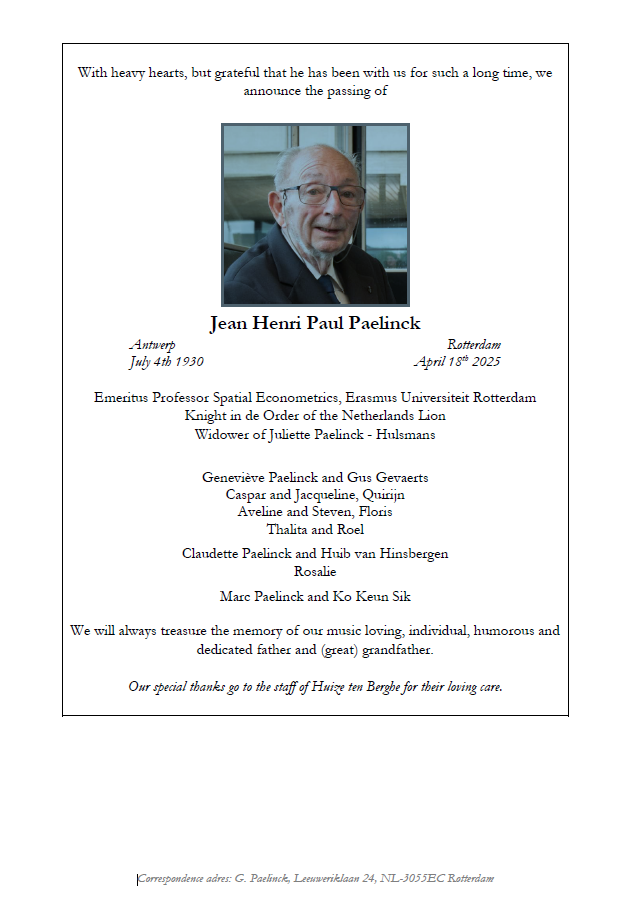
NARSC Call for Papers | Newsletter | NERSA Workshop
|
New Issue: Regional Science Policy & Practice | Volume 17, Issue 5, May 2025
|
|
|
|
|
|
|
|
|
About Us
The Regional Science Association International (RSAI), founded in 1954, is an international community of scholars interested in the regional impacts of national or global processes of economic and social change.

